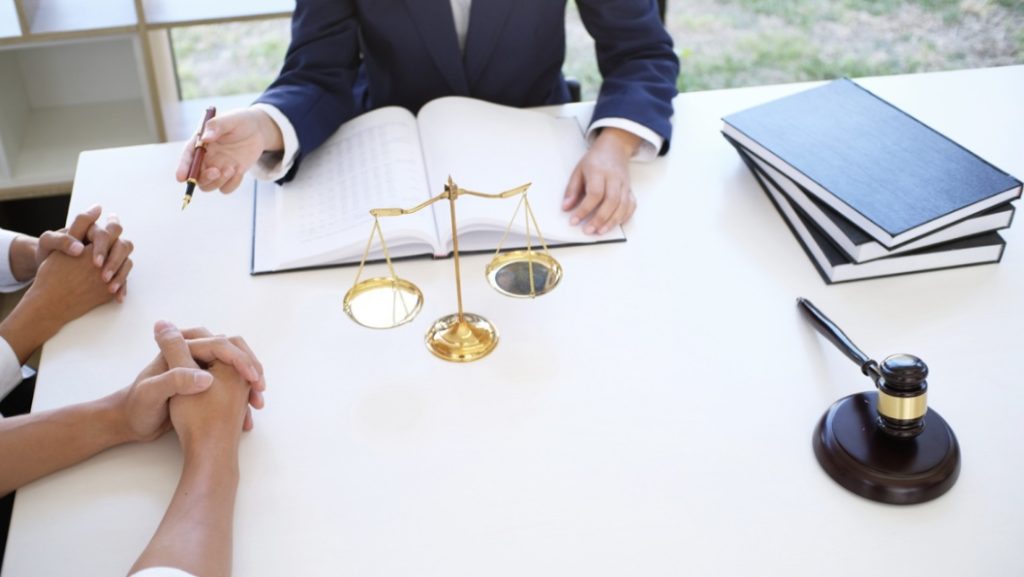Here’s something most people don’t realize until it’s too late: picking the wrong attorney costs way more than your retainer fee. We’re talking about your freedom, your financial future, even your ability to sleep at night.
Research shows that defendants who secure legal representation early often end up with reduced charges and better plea deals than those who wait. Still, plenty of people hire lawyers because their cousin recommended someone or they saw a catchy billboard.
Understanding why verification matters is step one. Now let’s talk about the single most telling sign of whether an attorney can actually deliver: their real-world results and what those outcomes say about your chances.
Reason 1: Case Success Rates Reveal True Competence
Think of your lawyer’s past performance as a crystal ball for your own case. Sure, every attorney sounds confident during that first meeting. But numbers? Those tell the truth.
Here’s the thing about settlements: most cases never see a courtroom, and that’s often perfectly fine. Good settlements spare you months of stress and uncertainty. But you need to know whether your potential attorney routinely negotiates strong settlements or just pushes whatever offer comes first. Ask about their specific track record with cases like yours; actual percentages beat vague assurances every time.
Norfolk’s legal scene is unique, shaped by its status as a major port with a serious commercial and military presence. Lawyers practicing here regularly navigate maritime law, injury cases, and military-related matters that demand particular know-how you won’t find everywhere.
When you’re dealing with significant injuries or losses, partnering with a personal injury attorney norfolk residents rely on can be the difference between adequate compensation and walking away with far less than you need. Local lawyers who’ve built solid reputations understand Virginia’s court system inside and out, plus they’ve cultivated relationships that might give your case a strategic edge.
Specialization Makes All the Difference
Some attorneys bounce between divorce cases one day and criminal defense the next. That works for straightforward matters, maybe. Complex cases? They need someone who’s laser-focused. A lawyer with proven attorney history in your exact case type brings experience that generalists simply don’t have. They’ve witnessed the patterns, dodged the traps, and learned which strategies produce results.
Impressive win rates look great on paper, but they’re meaningless if your attorney has buried misconduct issues, which is exactly why checking disciplinary records comes next.
Reason 2: Legal Malpractice History Protects Your Interests
Skip this step at your own peril. Even lawyers with fancy degrees and prominent offices can harbor problems that’ll torpedo your case.
State Bar Records Tell the Real Story
Each state keeps public records on attorney discipline. These databases expose suspensions, sanctions, ethics violations, the whole nine yards. Spending ten minutes checking these records could save you from disaster. Lawyers who’ve been disciplined for blown deadlines, conflicts of interest, or mishandling client funds? Yeah, they shouldn’t be anywhere near your case.
There’s this widespread belief that injury lawsuits need immediate filing, but deadlines actually vary by state and injury type. Illinois, for instance, gives you two years for most personal injury cases. Missing these windows because your attorney dropped the ball is textbook legal malpractice that destroys otherwise solid claims.
Understanding Malpractice Claims
Some attorneys rack up multiple malpractice lawsuits. That’s not a coincidence, it’s a warning sign. Public records show whether your prospective lawyer has been sued for negligence, fiduciary breaches, or other serious misconduct. You’d be shocked at how often clients skip this research simply because they don’t know it exists.
Once you’ve eliminated problematic lawyers, you’ll want to identify the exceptional ones. That’s where peer recognition becomes your secret weapon into what other legal professionals actually think.
Reason 3: Peer Recognition Shows Professional Standing
Lawyers know which of their colleagues are genuinely talented and which ones just have great marketing teams. Peer recognition systems let you tap into that insider perspective.
Decoding Legal Rating Systems
Martindale-Hubbell, Super Lawyers, Avvo, they all evaluate attorneys differently. Martindale-Hubbell’s AV rating represents their highest peer review score for ethics and skill. Super Lawyers involves nominations from other attorneys plus independent verification. Learning how these systems work helps you check a lawyer’s track record from multiple angles instead of relying on self-promotion.
Professional Involvement Matters
Attorneys who chair bar association committees or earn specialty certifications show dedication beyond collecting fees. These positions require peer respect and continuous learning. They’re also incredibly time-intensive, meaning the attorney values professional excellence enough to invest heavily in it.
But here’s something most people miss: even an award-winning lawyer with spotless credentials can’t properly serve you if their practice is financially shaky, a red flag clients often discover only when their cases get abandoned halfway through.
Reason 4: Financial Stability Prevents Case Abandonment
This might sound strange, but your law firm’s financial health directly impacts your outcome.
Warning Signs of Financial Trouble
Law firms facing money problems sometimes can’t afford expert witnesses, thorough investigations, or the hours needed to properly prepare. Worse, they might push quick settlements just to generate cash flow. A firm’s lawyer reputation for financial stability means they’ll pursue your case through to the strongest possible resolution.
Fee Structure Transparency
Written fee agreements with clear terms protect everyone involved. Red flags include hidden fees, unclear expense policies, or high-pressure signing tactics. Financially healthy firms don’t need aggressive sales approaches because they’re not scrambling for immediate cash.
Financial stability ensures your lawyer has the resources to fight for you, but these days, an attorney’s online presence reveals equally crucial information about their professionalism and capabilities.
Reason 5: Digital Footprint Reveals Competence
How a lawyer shows up online says volumes about their practice standards and client care.
Online Reviews and Reputation
Google reviews aren’t the whole picture, but patterns definitely matter. Does the attorney respond thoughtfully to negative feedback? Do past clients describe specific positive experiences rather than generic praise? Real reviews include details that fake ones can’t replicate. The legal field keeps evolving, and continuous education ensures lawyers maintain current knowledge and skills.
Technology and Modern Practice
Attorneys embracing current technology usually deliver superior communication and efficiency. E-filing systems, secure client portals, and digital case management aren’t just nice features. They’re indicators of a practice that’s staying current with professional standards.
With comprehensive track record information in hand, you’re positioned to take deeper due diligence steps that transform passive background checks into active evaluation through direct interaction.
Final Thoughts on Vetting Your Attorney
The gap between hiring any random attorney and choosing the right lawyer with documented success can literally mean the difference between justice and injustice, proper compensation and financial devastation. These five factors case outcomes, legal malpractice background, peer standing, financial health, and digital professionalism create a solid evaluation framework.
Don’t make this decision based on flashy ads or proximity to your house. Invest time to check lawyer track record completely, confirm credentials through official sources, and listen to your gut during consultations. Your case deserves someone whose proven track record suggests they’ll deliver the results you need.
Common Questions About Lawyer Track Records
What information is publicly available about a lawyer’s background?
State bar associations track licensure status, disciplinary actions, and standing verification. Court records document case involvement, though specific results aren’t always detailed. Many lawyers publish case outcomes on their sites, but you should verify these through independent sources whenever feasible.
How can I verify if a lawyer has faced malpractice claims?
Search your state’s court database using the attorney’s name. Some states maintain dedicated legal malpractice databases. PACER offers federal court access. Professional liability insurance details might be available through state bars, depending on your jurisdiction’s disclosure rules.
What does disciplinary action on a record mean for me?
Context is everything. Minor administrative sanctions from years back differ vastly from recent ethics suspensions. Evaluate the violation’s nature, timing, and whether the attorney has maintained a clean record since. Multiple violations signal deeper issues you shouldn’t ignore.


